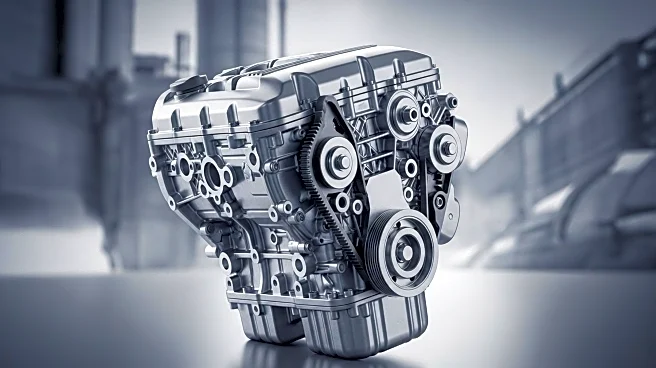What's Happening?
Germany's auto industry is experiencing a rise in supplier bankruptcies due to a combination of weak market conditions, high operational costs, and increased competition from Chinese manufacturers. Bosch, the world's largest supplier, is planning to reduce its global workforce by approximately 3 percent as part of its cost-cutting measures. This development highlights the financial strain on suppliers within the industry, which is grappling with the challenges of maintaining profitability in a competitive global market. The situation is exacerbated by the pressure to innovate and adapt to the growing demand for electric vehicles, which is reshaping the automotive landscape.
Why It's Important?
The increase in supplier bankruptcies in Germany's auto industry is significant as it underscores the broader economic challenges facing the sector. Suppliers are crucial to the automotive supply chain, and their financial instability can lead to disruptions in production and delivery schedules for major automakers. This situation could impact the competitiveness of German automotive companies on the global stage, particularly as they face growing competition from Chinese manufacturers. Additionally, the shift towards electric vehicles requires substantial investment in new technologies, which may further strain suppliers already dealing with high costs and market pressures.
What's Next?
As the auto industry continues to evolve, suppliers may need to explore strategic partnerships or mergers to remain viable. Automakers might also reassess their supply chain strategies to mitigate risks associated with supplier bankruptcies. The industry could see increased investment in innovation and technology to meet the demands of the electric vehicle market, potentially leading to a restructuring of the supplier landscape. Stakeholders, including government entities, may need to consider policy measures to support the industry during this transition.
Beyond the Headlines
The rise in bankruptcies among suppliers may have long-term implications for the German economy, particularly in regions heavily reliant on automotive manufacturing. The industry may face ethical considerations regarding workforce reductions and the impact on local communities. Additionally, the competitive pressure from Chinese manufacturers could lead to a reevaluation of trade policies and international collaborations to safeguard the interests of domestic suppliers.









